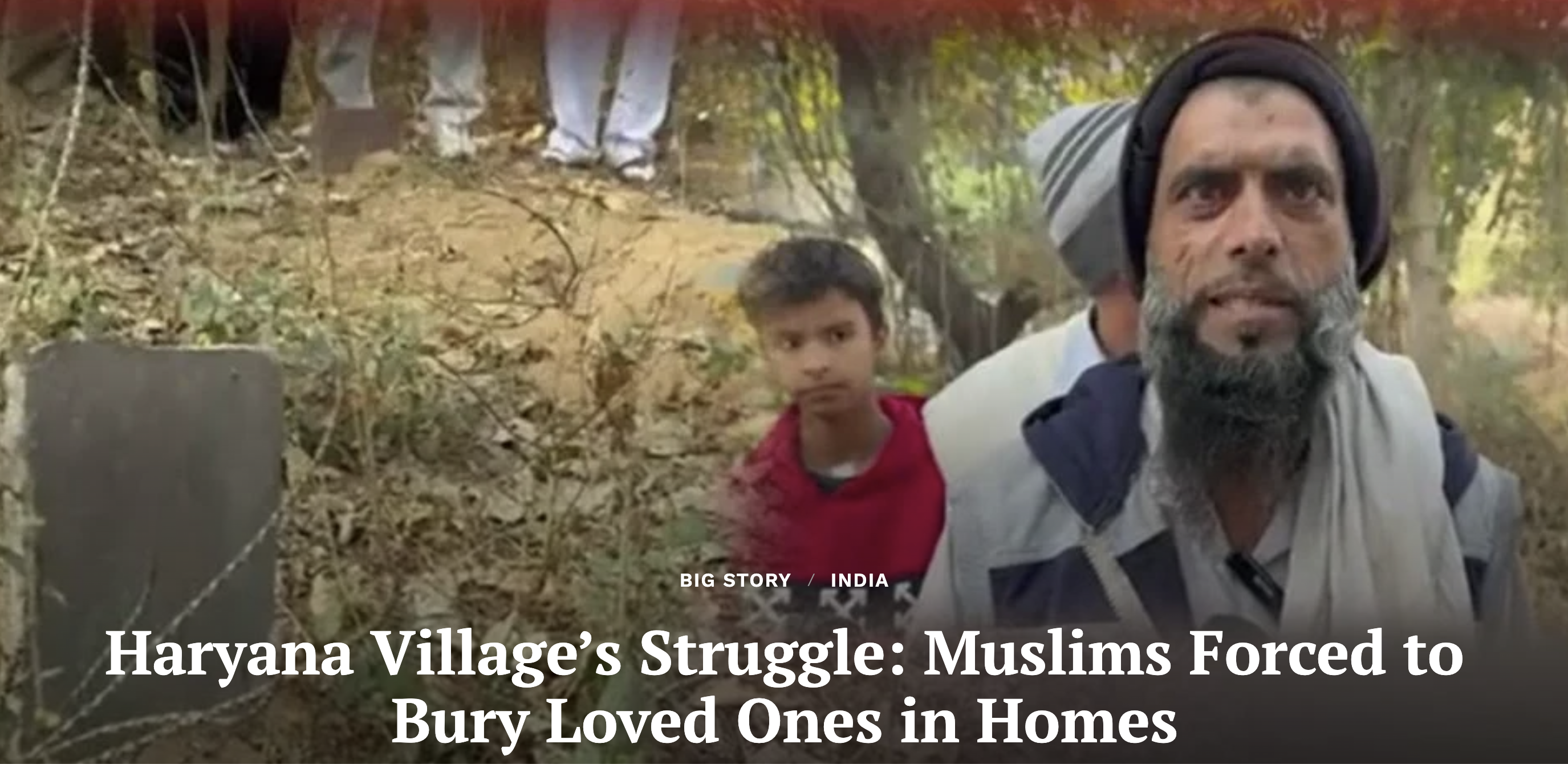
Mohammad Alamullah | Clarion India
NEW DELHI — In Gudana village in Haryana’s Charkhi Dadri district, around 50 families from the Muslim community are facing an unimaginable challenge: the lack of a cemetery. With no designated burial ground for their loved ones, these villagers are left with no choice but to bury their dead within the premises of their homes. This issue has been ongoing for years, but despite repeated appeals to local authorities and even ministers, the Muslim community has not received any solution other than assurances.
The situation has become so dire that members of the community have now decided to protest. They plan to take their deceased family members’ bodies to the doorsteps of the authorities, as a final plea for a permanent solution. They have warned that if anyone dies, they will no longer bear the agony of burying their dead in the premises of their homes.
The issue stems from the absence of a cemetery in Gudana village, which forces Muslim families to resort to the unthinkable: burying their dead in their backyards. In fact, it has become so common for people in the area to live surrounded by graves that it is now a part of daily life in the colony. However, the community is deeply disturbed by this situation. Muslim residents feel uncomfortable and uneasy even within their homes, as the graves of their loved ones are often right outside their doors. “We are living among graves,” says one villager, reflecting on the daily distress caused by the lack of proper burial facilities. “It feels unnatural and is unsettling for our families.”
The local Gram Panchayat has been unable to provide land for a cemetery due to the ongoing issue of land consolidation in the village. The land is reportedly tied up in legal proceedings, leaving the villagers in a state of uncertainty. Adding to their frustration, the cremation grounds, traditionally used by the Hindu community, are located in a different village, further complicating the situation for Muslims who cannot access them.
The situation recently took an emotional toll on a villager, who recalled the harrowing experience of waiting three days before being able to bury his elderly relative. “She passed away, and we had to wait for three days because we had no place to bury her. In the end, we had to bury her in our yard,” he said, his voice filled with grief. This was not an isolated incident; several families in the community have had similar experiences. To date, over a dozen bodies have been buried in the residential area. Yet, no action has been taken to establish a proper cemetery.
According to Ravindra Kumar, the Sarpanch of Gudana village, the core issue is the absence of land consolidation. “The village land has not been consolidated yet, which prevents us from allocating land for a cemetery or a crematorium,” Kumar explained. “This has affected both the Muslim community and other villagers. We are all stuck in a situation where we cannot get the land for burial or cremation. The matter is currently in the high court, and we are awaiting a verdict.”
This story was originally published in clarionindia.net. Read the full story here.

